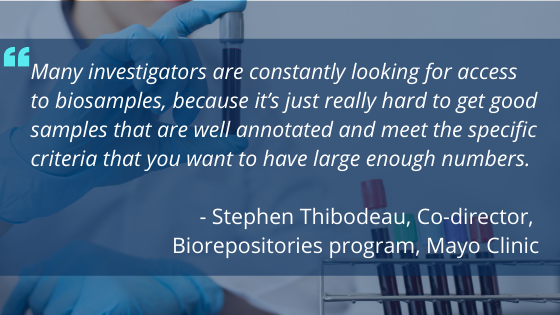All around the world, human samples are stored in laboratories, hospitals, and specialized facilities. These collections vary significantly in size—from single labs housing specimens for individual projects, to large, university-based biobanks. In the United States alone, there are thousands of such facilities. “Anybody that’s systemically collecting samples is considered a biobank,” said Andrew Brooks, Ph.D., COO at RUCDR Infinite Biologics, a Rutgers University-based biorepository. “There are biobanks all over the place, and [there is] a huge, growing community.”

Despite the growth in biorepositories, technical and operational hurdles still stand in the way of investigators procuring the right samples for their research. In a 2011 National Cancer Institute (NCI) survey of 727 cancer researchers, 47 percent reported having difficulty obtaining quality biospecimens. And as the field of precision medicine continues to accelerate, the demand for high-quality samples will likely continue to grow.
Click to read more.
